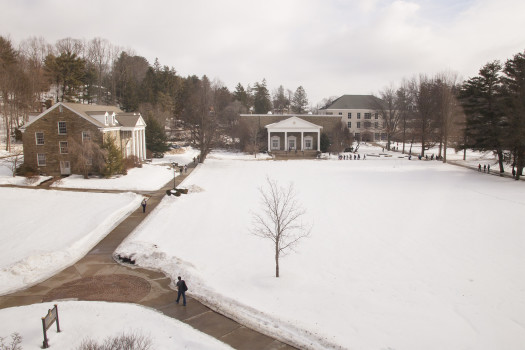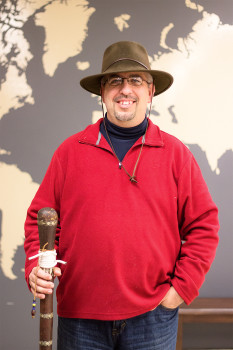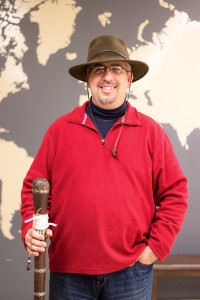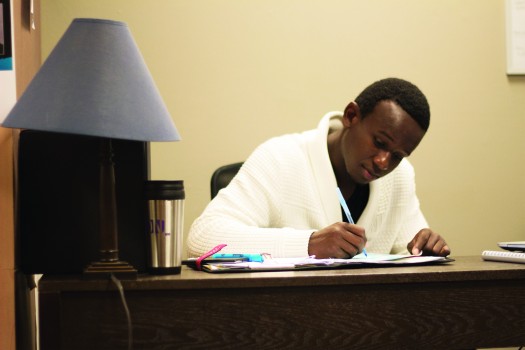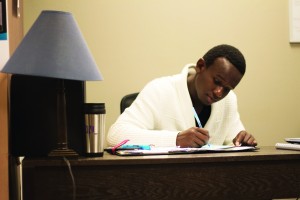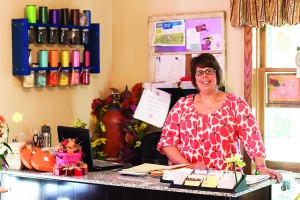More than just a college town.
It can be safely said that Houghton is not the biggest, most notable town on the map. Yet a number of Houghton administrators want to make Houghton, New York more than a small college town. Through a set of varied initiatives, they are hoping to make Houghton “a destination,” as Rob Pool, vice president for student life, put it, “for visitors and guests.”
This plan has already been partially implemented through the opening of the Kerr-Pegula Athletic Complex (KPAC) this past September. Pool explained that because of the KPAC, “there are rich, varied events we now offer that we couldn’t do before.” Athletic director Harold “Skip” Lord indicated the KPAC’s capabilities. “Obviously, the size is a big factor. The flexibility of arrangement and the ability to break it into smaller or larger units are plusses.”
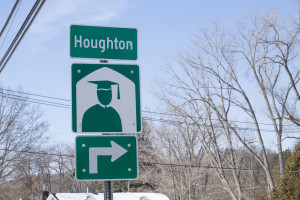 Since the KPAC has been built, a concert has been held, which Lord noted “was twice as big as any ever held here.” There have also been twelve high school and college indoor track meets. Pool explained that with the KPAC’s size and capabilities, Houghton is “reaching out to section five and six schools,” which increases the amount of people who will “hear about the college, hear about this tiny place called Houghton, New York.” In addition to concerts and sporting events, the KPAC has also hosted youth events and a Frisbee tournament. Overall, Lord said there have been “almost 18,000 visitors this year.” Regarding future opportunities, Lord said “we are looking at many different options ranging from athletics to concerts to trade shows and special events.”
Since the KPAC has been built, a concert has been held, which Lord noted “was twice as big as any ever held here.” There have also been twelve high school and college indoor track meets. Pool explained that with the KPAC’s size and capabilities, Houghton is “reaching out to section five and six schools,” which increases the amount of people who will “hear about the college, hear about this tiny place called Houghton, New York.” In addition to concerts and sporting events, the KPAC has also hosted youth events and a Frisbee tournament. Overall, Lord said there have been “almost 18,000 visitors this year.” Regarding future opportunities, Lord said “we are looking at many different options ranging from athletics to concerts to trade shows and special events.”
While the KPAC is bringing in visitors and guests through hosting events, Pool has his own plan to bring in new life to Houghton. Pool is working toward a Houghton alumni village, meant as a place for “active retirees” to spend part of their retirement. Here, they could play an active role in campus life. Pool noted the possibility of taking classes at a reduced or waived fee or even auditing them. Beyond this, they could act as mentors, advisors, or career coaches. Pool explained that at such a stage in life, they are often “at the top of their careers, with vast amounts of wisdom to share. Thus in playing such roles, they could create “a multi-generational learning community,” where students could have “the complementary benefit of older generations.” Pool explained that for students, “it’s so inspirational to see flesh and blood people who have had the Houghton experience and went out and lived.”
In practice, the alumni would likely be housed in the flats. The inherent difficulty is mobility for the retirees. The flats have multiple floors, and although the retirees are specified as “active,” not requiring constant care, stairs could still be arduous. Pool is still working to find a workable solution to housing, but he affirmed his overall hopes for the idea. He noted other small colleges that had accomplished a similar idea, and reiterated his feeling that alumni would like to be involved on campus in this way. “Many retirees don’t want to lounge in the sun,” Pool explained. They want an active role, and “what better place to do that than at your alma mater?”
Phyllis Gaerte also wants to make Houghton a destination, specifically through theRIVR Group, an organization working toward reinforcing Houghton economically. They were responsible for bringing in Three-Bums and Addie’s, and have hopes of creating a new park by the fire hall. “It’s all designed to make the area around 19 more attractive,” Pool explained. The goal is a Houghton “filled with thriving businesses.”
“It’s a beautiful place,” Pool says of Houghton. “Not the scenery, the people.” Lord, Pool, Gaerte, and several others share a vision of a thriving Houghton where many more people can see its beauty.

